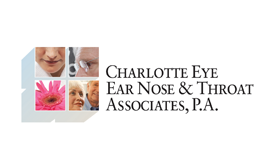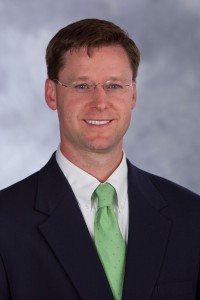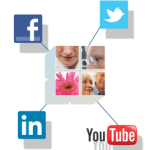By Smarty Guest Blogger, Jonathan Moss, MD, Adult & Pediatric Otolaryngology, Charlotte Eye Ear Nose & Throat Associates, PA – Matthews Office
How many times have you heard the term “ear infection” from your child’s physician? It’s safe to assume that you’ve heard this phrase at least once. According to the American Academy of Otolaryngology – Head and Neck Surgery, by the age of five, nearly every child has experienced at least one episode. Unfortunately, these infections seem to be a rite of passage for our little ones. If your child has reoccurring middle ear infections, they may be referred to an otolaryngologist (ear, nose and throat physician) for ear tubes. 
Don’t worry. Our physicians at Charlotte Eye Ear Nose & Throat Associates (CEENTA) do this procedure all the time. Actually, one of our former physicians, Dr. Beverly Armstrong, designed the ear tube in 1952. What better clinic to visit for tubes than the clinic where the tube began?
Being that more than half a million ear tube surgeries are performed on children each year, it has become the most common childhood procedure using anesthesia. With that being said, if you are heading down the road to tubes, we want you to be prepared, so we’ve put together a few commonly asked questions and went to our own Dr. Jonathan Moss for answers.
Q: How can I best prepare my child for the procedure?
A: For parents, be sure to let your doctor know if your child has an upper respiratory infection, particularly a cough and chest congestion. This could lead to the surgery being cancelled due to an increase in anesthesia risk. An ear infection on the day of surgery is not a reason to cancel the surgery as placing the tubes in will resolve the ear infection. As for preparing your child for the surgery, if they are older you can let them know that they will not feel any pain or have a needle stick. For younger children feel free to let them be comfortable and wear their favorite pajamas and bring a favorite blanket or stuffed animal.
Q: As a parent, what should I expect out of my child in the hours after the procedure? Days?
A: Most children are fussy/irritable upon awakening from the anesthesia, which is normal. This will resolve within a few hours particularly after taking a nap. The surgery is not painful, but you may give your child acetaminophen (Tylenol) if you feel it is necessary. Some children may also have ear drainage for 2-3 days after the procedure, which may be blood tinged, and this is normal.
Q: How long does the procedure take?
A: The procedure takes approximately 15 minutes, which includes the anesthesia and surgery time.
Q: What foods should my child NOT eat after surgery?
A: For the first few hours after surgery you should give them liquids as some children may have nausea. Once this is tolerated, they may eat as desired.
Q: What activities should my child avoid after surgery?
A: You should expect your child to be irritable and tired following the procedure, and they would do best at home in a calm environment for the remainder of the day.
Q: What follow-up care is required out of me as a parent/caregiver?
A: Your doctor may want you to place ear drops in your child’s ear(s) following surgery, other than that, no special treatment is required. If visible drainage is coming from their ear you may clean this with a moist washcloth. A follow-up visit will be scheduled for 2-3 weeks following tube placement and a hearing test is typically done at this visit.
Q: How soon after the procedure will my child start to feel relief?
A: Once fluid is removed from the ear during the procedure the ear should return to normal over 2-3 days. Some children may have persistent drainage beyond this time, and if present, you should let your doctor know.
Q: If done during the school year, how long should I expect my child to be out of school?
A: Recovery from the procedure typically takes one day, and by the following day, your child should be back to their normal activities. Some children may take longer, and you should monitor their recovery.
Q: Will my child need to wear ear plugs in the bath tub or while swimming after having tubes inserted?
A: Generally, treated water (bathtub, swimming pool) is safe to get in your child’s ears following tube placement and ear plugs are not required. I actually encourage my patients to get water in their ears as it helps keep the ear canal clean which is important for proper function of the tubes.
 To schedule an appointment with Dr. Moss or any of the board certified physicians at CEENTA, please call 704-295-3000 or visit goodsenses.com for more information on their services.
To schedule an appointment with Dr. Moss or any of the board certified physicians at CEENTA, please call 704-295-3000 or visit goodsenses.com for more information on their services.
Charlotte Eye Ear Nose & Throat Associates

6035 Fairview Road
Charlotte, NC 28210
704-295-3000
Click here for locations.
You can find CEENTA on facebook, twitter, blog & youtube.


